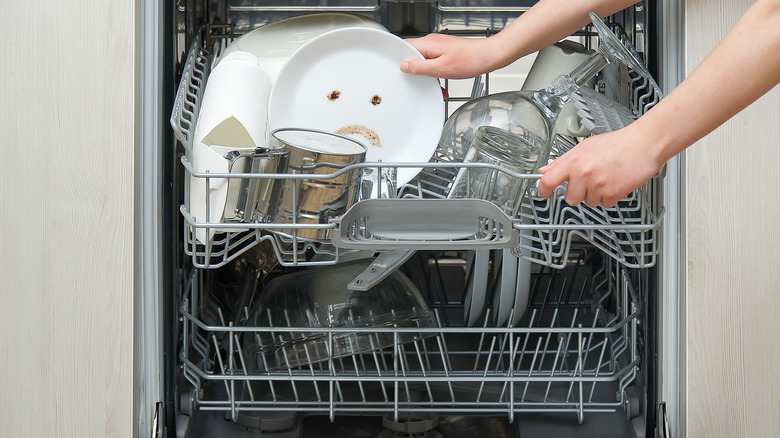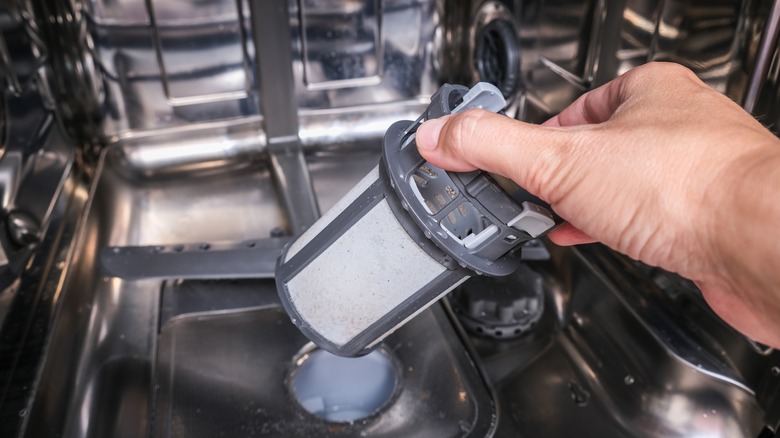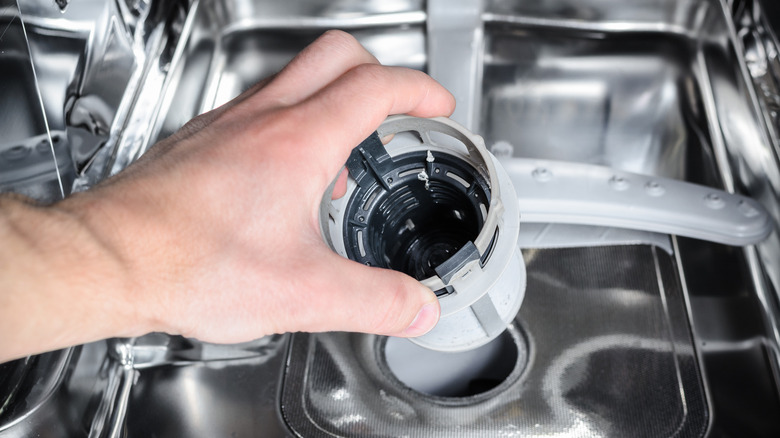Why Your Dishwasher Is Leaving Black Grime On Your Cookware
A dishwasher is an appliance that most people nowadays take for granted, but it wasn't always so simple to do the dishes. The first dishwasher was invented in 1850, and these appliances were only reserved for the wealthier classes. Dishwashers have only gotten more advanced, efficient, and reliable, but that doesn't mean they're without flaws.
Few things are as annoying as getting ready to put away a clean load of dishes, only to find they're not only still dirty but seemingly grimier than before. Black grit or marks are often left behind on dishes that should be clean, which can manifest as dark film or black spots of various sizes, per Kitchen Bun. These marks can be removed easily outside the dishwasher, but the issue still stands. If your dishes come out of the dishwasher covered in black grit, it can be irritating, but the fix is quick and straightforward.
Dirty dishwasher filter
Though washing your cookware takes precedence, don't forget that you have to clean your dishwasher, too. Even if you thoroughly rinse your dishes before loading them, there's still food accumulating inside the appliance, and it has to have someplace to go. That location is often the dishwasher filter, which Clean My Space warns can get clogged with food particles. The filter will start depositing grit back onto your plates when it gets too clogged. This is a simple fix, though.
All you need to do is clean the filter. Begin by removing it — it will be located under the dish rack, near the bottom spray arm, or in the back corner of the appliance, via Whirlpool. Next, run it under a stream of water. This may be all you need to do if it's not too dirty. If dirtier, use a soft brush and mild dish soap to give it a more thorough cleaning. Finally, return it to the dishwasher, ensuring it's properly locked before running. If the filter is damaged, replace it before running your next load.
Keeping the filter clean
How often you need to clean your dishwasher filter depends on how frequently you run the machine and how thoroughly you clean your receptacles before loading them, per Maytag. This could be as seldom as once a year to as often as once a week. Thoroughly washing or scraping, and rinsing your dishes gives you the longest gap between filter cleanings, whereas only scraping or doing nothing means regular cleaning.
That being said, it's generally recommended that you don't wash or rinse your dishes before loading them into the dishwasher. As Popular Science explains, dishwashing detergents or tabs need food to stick to; otherwise, they could damage clean plates. This doesn't mean you should load big chunks of food into the dishwasher, but scraped plates provide a happy medium. It's also not a bad idea to check for large pieces of food that could've fallen to the bottom of your dishwasher after each cycle, so they don't clog your filter.


